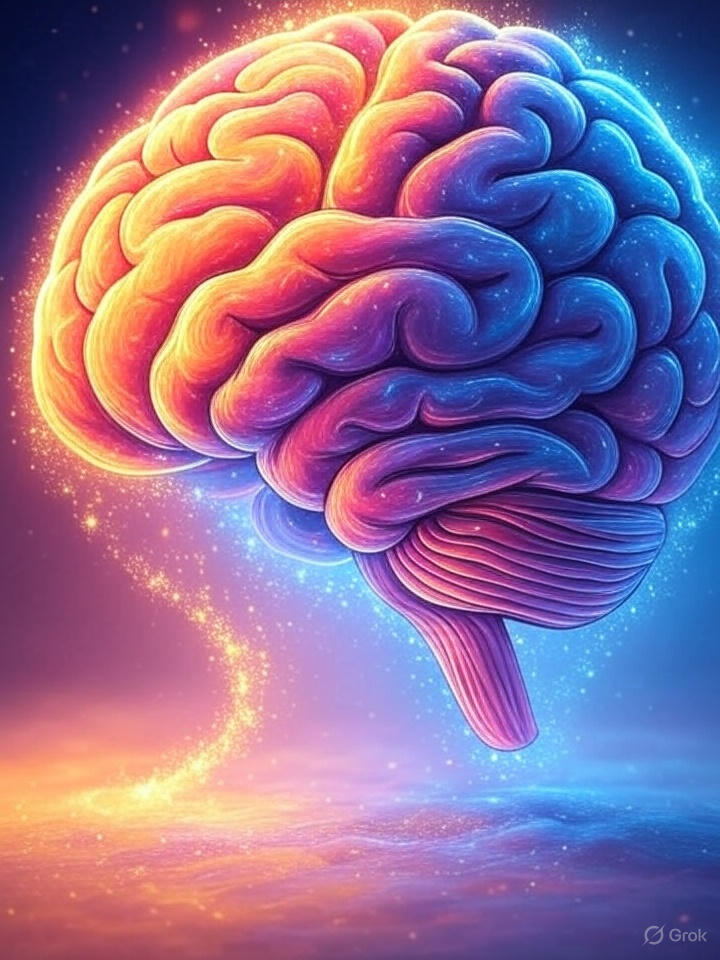Magnesium, a cornerstone of human physiology, powers over 300 enzymatic reactions—from energy metabolism to nerve transmission. Yet, not all magnesium supplements are created equal. Emerging from the lab of MIT in 2010, magnesium L‑threonate (often known by the trademark Magtein®) has captured scientific and clinical attention for its unique ability to cross the blood–brain barrier and deliver magnesium directly into neurons, with promising implications for cognition, sleep, mood, and more PMCHealth.
What sets magnesium L‑threonate apart is its molecular vehicle: L‑threonic acid, a metabolite of vitamin C, which appears to shepherd magnesium into the brain more effectively than conventional forms like citrate, glycinate, oxide, or chloride PMCHealthline. Animal studies show that it raises brain magnesium concentrations by 7–15% over just 24 days—far exceeding other forms of magnesium in terms of neurobioavailability PMC.
Preclinical models illustrate that higher brain magnesium supports synaptic plasticity and memory power. For instance, in rodent studies, supplementation improved both learning and memory—effects attributed to enhanced synapse density via NMDA receptor modulation PMC.
Translating these insights into human research, a double‑blind, placebo‑controlled trial in healthy Chinese adults (aged 18–65) found that a formulation combining magnesium L‑threonate with phosphatidylserine, vitamin C, and vitamin D (Magtein® PS) delivered cognitive gains after daily supplementation of 2 g for several weeks PMC. Another randomized controlled study conducted in middle‑aged adults with sleep disturbances revealed that 1 g/day of magnesium L‑threonate for 21 days significantly improved both subjective and objective markers of sleep quality—particularly deep and REM sleep—and boosted daytime mood, energy, alertness, and productivity PMC.
A broader review highlights emerging yet still preliminary benefits across cognitive domains: deep sleep, memory, learning, attention (including ADHD), and mood modulation Verywell Health+1. A small clinical trial even suggested a 25 % reduction in ADHD symptoms after 12 weeks of supplementation Verywell Health+1. In people undergoing cancer treatment, magnesium L‑threonate appeared to ease opioid‑induced constipation and allowed for reduced morphine usage, hinting at roles in pain management and gut motility HealthVerywell Health.
Still, while the data are compelling, the evidence base remains relatively modest—centered on small, short-term trials or preclinical work—and further replication in broader populations is needed HealthMedical News Today.
So how does magnesium L‑threonate differ from more common forms like magnesium glycinate, citrate, or oxide? Conventional supplements primarily raise systemic magnesium levels and are valuable for correcting dietary deficiency, promoting muscle and nerve function, easing constipation, or supporting sleep in a general sense (e.g., glycinate’s calming amino acid, citrate’s laxative effect) HealthlineVerywell Health+1. However, these forms rarely cross the protective barrier into the brain, limiting their direct impact on neural function.
In contrast, magnesium L‑threonate is distinct in its brain-targeted action. Its unique chelation with threonate enables more direct delivery to neurons—a key differentiator for those seeking cognitive, memory, or neuroprotective effects PMCHealthlinelifeextension.com.
Clinically, magnesium L‑threonate has demonstrated faster onset of cognitive and mood benefits—often within weeks—versus months for generalized magnesium forms Verywell Health. Glycinate or citrate may be better for systemic deficiency, sleep maintenance, or metabolic support (e.g., blood sugar regulation), while L‑threonate may be the better choice when brain health is the target Verywell Healthlifeextension.com.
Safety profiles appear favorable. Trials report good tolerability, with side effects—such as stomach upset, nausea, cramps, or diarrhea—being mild and infrequent when used within recommended doses Medical News TodayVerywell HealthHealth. Still, those with kidney disease or on medications like antibiotics, diuretics, proton pump inhibitors, bisphosphonates, or those taking calcium or zinc supplements, should consult a healthcare provider—magnesium can affect absorption and electrolyte balance Verywell Health+1Medical News Today.
Dosing guidance varies. Some studies suggest around 25 mg per kilogram body weight (equivalent to roughly 1.5 – 2 g magnesium L‑threonate, delivering ~100–250 mg elemental magnesium) is effective and typically aligns with a bedtime or split daily schedule Verywell Health+1Health. While tolerable upper intake levels for elemental magnesium are generally ~350 mg/day, L‑threonate formulations commonly stay below this threshold—even as the total L‑threonate compound is higher Verywell HealthHealth.
In practice, magnesium L‑threonate may be ideal for individuals seeking to boost cognitive resilience—such as aging adults, students, or professionals—while other forms remain valuable for general magnesium replenishment or sleep support. Some individuals choose to combine both: using L‑threonate for neurocognitive impact, plus glycinate or citrate for broader magnesium needs and digestive support lifeextension.com.
In summary, magnesium L‑threonate represents a meaningful advance in targeted mineral supplementation. Unlike traditional forms, it is engineered for neurobioavailability, and early human research shows promising benefits for sleep, mood, memory, and cognitive function. Although more robust trials are needed to confirm long-term outcomes and broaden applications, it offers a compelling option for those prioritizing brain health.
As with all supplements, prudent use—guided by dosage awareness, clinical monitoring, and medical advice—is essential. And while the science continues to evolve, magnesium L‑threonate may well be a linchpin in the intersection of nutrition and neurology.
Written by ChatGPT, proofread by a real human.

Yay – someone mentioned us!
https://helsefeber.io/forum/kosttilskudd/34-magnesium-brain-magnesium-l-threonate-erfaringer